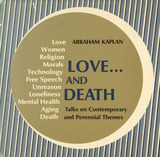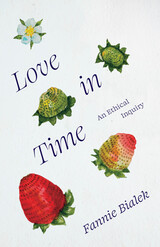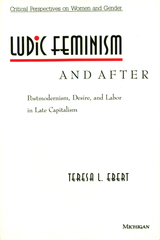2 books about Lewis, Eric
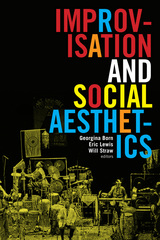
Improvisation and Social Aesthetics
Georgina Born, Eric Lewis, and Will Straw, editors
Duke University Press, 2017
Addressing a wide range of improvised art and music forms—from jazz and cinema to dance and literature—this volume's contributors locate improvisation as a key site of mediation between the social and the aesthetic. As a catalyst for social experiment and political practice, improvisation aids in the creation, contestation, and codification of social realities and identities. Among other topics, the contributors discuss the social aesthetics of the Association for the Advancement of Creative Musicians, the Feminist Improvising Group, and contemporary Malian music, as well as the virtual sociality of interactive computer music, the significance of "uncreative" improvisation, responses to French New Wave cinema, and the work of figures ranging from bell hooks and Billy Strayhorn to Kenneth Goldsmith. Across its diverse chapters, Improvisation and Social Aesthetics argues that ensemble improvisation is not inherently egalitarian or emancipatory, but offers a potential site for the cultivation of new forms of social relations. It sets out a new conceptualization of the aesthetic as immanently social and political, proposing a new paradigm of improvisation studies that will have reverberations throughout the humanities.
Contributors. Lisa Barg, Georgina Born, David Brackett, Nicholas Cook, Marion Froger, Susan Kozel, Eric Lewis, George E. Lewis, Ingrid Monson, Tracey Nicholls, Winfried Siemerling, Will Straw, Zoë Svendsen, Darren Wershler
[more]
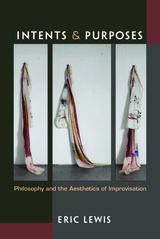
Intents and Purposes
Philosophy and the Aesthetics of Improvisation
Eric Lewis
University of Michigan Press, 2019
How do we define improvised music? What is the relationship of highly improvised performances to the work they are performances of? How do we decide what are the important parts of an improvised musical work? In Intents and Purposes, Eric Lewis uses a series of case studies to challenge assumptions about what defines a musical work and musical performance, seeking to go beyond philosophical and aesthetic templates from Western classical music to foreground the distinctive practices and aesthetics of jazz. Pushing aside the assumption that composition and improvisation are different (or even opposed) musical practices, Lewis’s philosophically informed approach revisits key topics in musical ontology, such as how to define the triangle of composer-performer-listener, and the status of live performances in relation to scores and recordings. Drawing on critical race theory, feminist theory, new musicology, sociology, cognitive science, and genre theory, Lewis opens up new questions about agency in performance, as well as new ways of considering the historical relationships between improvisational practices with roots in different cultural frameworks. By showing how jazz can be both art, idea, and action all at the same time, Lewis offers a new way of seeing any improvised musical performance in a new culturally and aesthetically rich context.
[more]
READERS
Browse our collection.
PUBLISHERS
See BiblioVault's publisher services.
STUDENT SERVICES
Files for college accessibility offices.
UChicago Accessibility Resources
home | accessibility | search | about | contact us
BiblioVault ® 2001 - 2025
The University of Chicago Press


